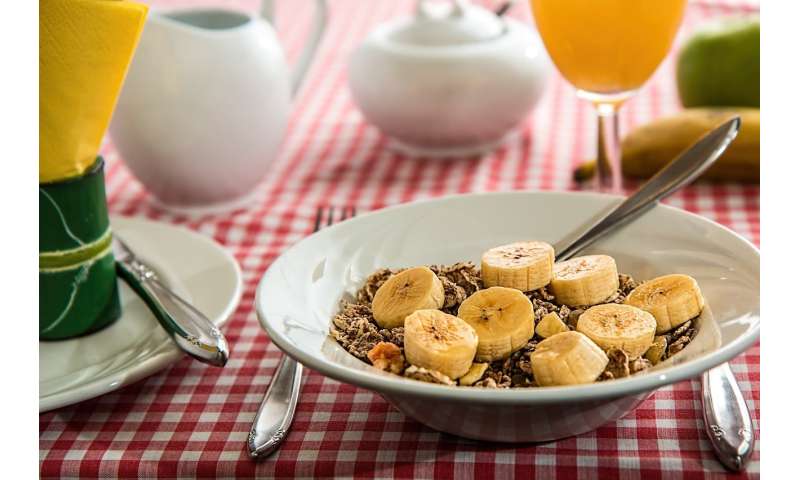

People looking to adopt a healthier lifestyle may benefit from new apps designed to sustain behavior change to new research being carried out by the University of Reading.
Experts in consumer behavior Dr. Elena Millan and Professor Adrian Palmer, and the behavioral psychology expert Dr. Julia Vogt have been working on an EIT Health/Food-funded project, STOP MetSyn, to understand people’s eating habits and lifestyle choices. The project work was led by Dr. Elena Millan from the School of Agriculture, Policy and Development and research started in February 2020.
The research is being used to build a new healthy lifestyle platform based on psychological theories including nudge, and will encourage people to build up healthy habits over a period of time rather than trying to change all aspects at once.
Dr. Julia Vogt, Associate Professor of Psychology at the University of Reading said:
“The ‘new you’ mentality of changing all of your behavior at once and hoping that it sticks might feel appealing, but every January we see gym memberships soar and healthy eating adopted only for the vast majority of people finding that change too challenging and giving up.”
“Instead, we’re looking at using newest psychological insights to help people consider how they can gradually build up healthy behavior over time. For example, stress can be a major negative factor in following a healthy lifestyle and many of us reach for a glass of wine or block of chocolate after a stressful day. By considering stress and ways to nudge healthy behavior that work even when stressed, we can avoid these major crashes when stress comes along rather than feeling like a failure.”
“Our early data is helping us to understand this issue and more importantly, help to develop solutions such as making exercising and healthy food more enjoyable and rewarding.”
Pandemic has led to more healthy eating and lifestyle habits, but UK snackers are ahead of French and Germans for indulging
Dr. Elena Millan, the work package leader who also led the mapping of actual behavior and habits related to food purchases and lifestyle choices via online surveys in UK, France and Germany, said:
“Healthy foods are amongst the most frequently consumed types of foods on a weekly basis across the three countries: home-cooked meals, dairy products, fruits and vegetables. Interestingly, indulgence food followed the aforementioned ones in terms of consumption frequency, with some 50% of people in the UK and France (and slightly less in Germany) saying that they were eating such food between 2 and 4 times per week, whereas between 11% (France) and 15% (UK) were consuming them at least once per day.”
“While consuming indulgence foods infrequently can help maintain an overall healthy diet, the consumption of such foods in excess can lead to higher body weight and can pose health threats, particularly to people with underlying health conditions.”
“Apparently, consumers are aware of the diverse outcomes of their diets and level of physical activity, with the majority reporting that as a result of their diets and exercise they have achieved improved health or reduced risk of disease, and positive feelings boost such as feeling happy, content, and hopeful. These results are reassuring particularly in view of the health-related challenges posed by the COVID-19 situation.”
“Since the beginning of COVID-19, across the three countries a notably higher percentage of people report eating (40% Germany to 56% France) and living (37% Germany to 48% France) healthier than those who report deterioration of their diet (5% France to 15% UK) and lifestyle (10% Germany to 14% UK) quality.”
Can technology help improve eating habits and lifestyles?
The team have been working with consumers to jointly create an app that factors in questions such as about what makes it hard for them to exercise and eat healthy. The process also means that consumers were also able to share their ideas for how to achieve a healthier lifestyle in their daily lives.
Dr. Vogt said:
“This process was creative—participants were often asked to share their opinions but also to share images to visualize their ideas and to read each other ideas and to develop together even better solutions. This means, participants worked for days on solutions.
“The most valuable app features across countries related to personalization, like the app setting specific goals for you or suggesting recipes based on your shopping list. It would learn as you use it more, being able to tailor suggestions for food or workouts, and can help with goal setting and monitoring.”
Dr. Millan said: “The growing use of mobile devices has been accompanied by increasing popularity of apps for healthy eating and living. Interestingly, we found a more sustained use of such apps by a good percentage of those who have attempted them: 30% (France) to 36% (UK) report using their app for 6 or more months. Also, physical activity apps have stronger appeal than nutrition apps thus indicating a greater perceived value of the former.”
Source: Read Full Article